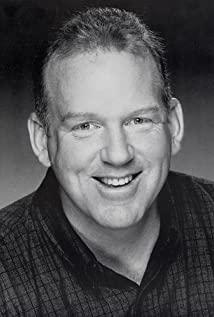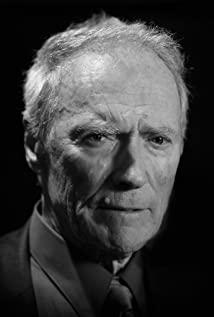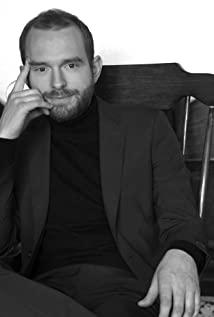The story takes place in Paris, San Francisco, and London. It tells the story of Marie, a well-known female reporter who came back from the tsunami, George, a psychic with superpowers, and Marcus, a ten-year-old boy who lost his twin brother. It is a story that longs for communion with the dead but cannot communicate.
The three protagonists in the movie have all been close to death. Marie, who came back from the dead, and Marcus, whose brother died in a car accident for him, has a more intense exploration of life than the average person. George, the psychic medium who communicates the living and the dead, is eager to return to normal life. He said that this superpower is not a talent, but a curse.
Recently, I was watching Zhang Chunru's "Nanjing Catastrophe", and a few days after borrowing the book, there was another earthquake in Japan. Like Nicole Kidman's desperate and impatient rhetoric in "The Rabbit Hole" of a mother who also lost her child: "If God needed an angel, he would have made another one, why would he take your child?" For people who do not understand religion or have no religious belief, I also think that although God is merciful, he is also cruel at times. Otherwise, why would he allow so many extremely cruel things that challenge the limits of human beings?
Emerson opened the coffin of his first wife to see her body a year after she was buried, and in 1857, he also opened the coffin to see the remains of his son. 15 years after his death, Emerson moved his grave. In 1855, Emerson delivered his views on communication at the inauguration of Sleepy Hollow Cemetery in Concord, Massachusetts. Emerson gave up the possibility of the soul and soul of the living and the dead, and all the living could do was to interpret the traces of the dead from the perspective of nostalgia. He did not expect a direct answer from the dead, but only found solace in this one-way exchange.
In The Experience, he wrote: "The only thing grief taught me was how shallow our experience was. That experience, like any other, was only a superficial throb and never brought me into reality. We even pay the price of sons and lovers for relief. An insurmountable sea lies between us and the objects beyond. We aim at these objects and attempt to talk to them. However, we are left with only death. We watch Death, we have to say with dry satisfaction that there is at least one reality that will not avoid us."
There are two chapters in "The Helplessness of Communication" devoted to dialogues with the dead. On the back cover of the book, author Peters writes: "Communication is rare and fragile, like a crystal. Nothing guarantees the successful transfer of meaning across two brains." Everything that relies on a medium that records and transmits functions (which has now put us body and soul under his command), in the final analysis, there is no difference between the communication between the living and the dead.
He said: “Because of the mediating role of the medium, the communication situations we are in are basically explanatory rather than conversational. Only a lonely person can expect a movie, record or radio show to respond to him personally. Or more accurately, we are all lonely souls because we 'interact' with books, pets, babies, or distant friends." At the
end of the day, everyone is lonely, alive or dead, with finite lives, infinite obstacles— "The Helplessness of Communication" is filled with loneliness. According to Christianity, God created different languages to make it impossible for human beings to communicate. Humans' plan to build the Tower of Babel to lead to heaven failed, and they have gone their separate ways since then. Since then, true communication has become utopia, except that the messenger angels of God are able to communicate perfectly. God loves all sentient beings, but makes all sentient beings unable to communicate and dialogue in the process of life and death.
According to Peters, this is the beginning of wisdom. Acknowledging the wonderful otherness of all beings that share the world with us. But they don't lament like we do, and we can't dig into their inner world. Our task is to recognize the characteristics of others, not to transform others according to our own preferences and images. "Your performance is not to reproduce yourself as it is, but to allow others to be cared for. Such a human-to-human connection surpasses what an angel can provide. The joy is not in going beyond contact with each other, but in It lies in the consummation of contact.”
It’s just that many times when we say caring, love, “love can overcome loneliness” and “love can create miracles”, it sounds as powerless as “people will conquer heaven”. Some wounds, no amount of love can heal, some defects, no amount of love can overcome, and some obstacles, no amount of love can overcome. Love is in the spiritual sense, in any case, it cannot change the objective existence. Besides, love is sometimes very narrow. Like the line from "Softness", "Love? It's almost the most ambiguous word in the world, because it's been used too much and it loses its full meaning. Everyone talks about love, but they don't say it at all. one thing". "Everyone is lonely. In our life, it is not uncommon to encounter love and sex. What is rare is to encounter understanding." It is really boring and powerless to return to loneliness, communication and understanding.
What is the world after death? The video has no answers.
Marie in the film says, "We have a long way to go before we can face death and the afterlife properly, and get a rational view." The green world will have a rich history: good, wise, and great men will leave their names and virtues in the green treetops; heroes, poets, beauties, holy men, benevolent men, will make The air reads the time and speaks the words."
Could that be the case?
View more about Hereafter reviews











